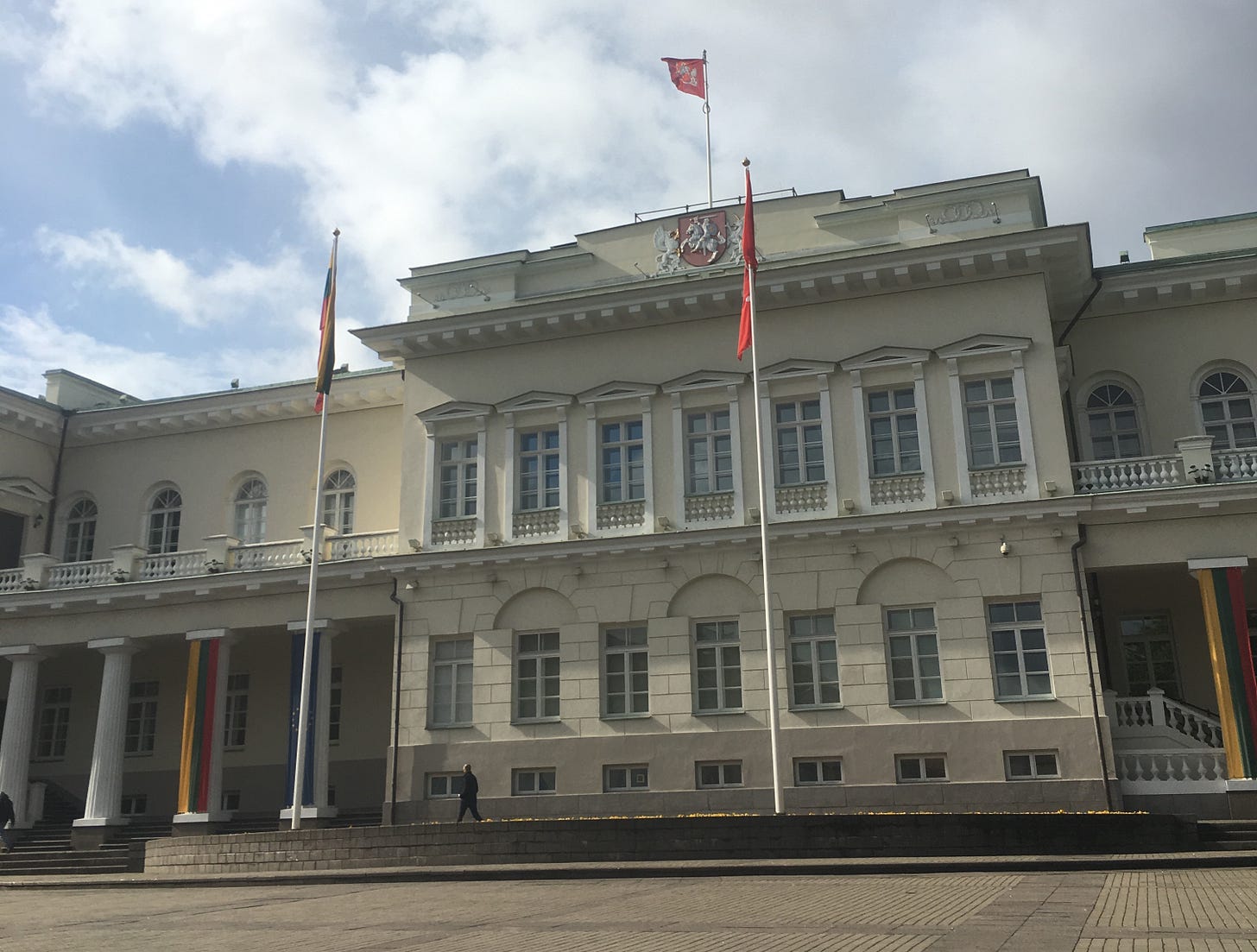
Lithuania’s Presidential Palace - new occupant coming soon!
Greetings from Vilnius, Lithuania, where it’s election season, but you wouldn’t know it. There are no billboards posted, no visible political agitation, no political stickers on building entrance ways, and a grand total of three ads running on TV. It’s positively sleepy. Granted, I’ve just come from Ukraine, where the electoral atmosphere was more…charged, to put it diplomatically, but if I weren’t here to study malign narratives during the presidential contest, I likely would not guess that Lithuanians are voting in fewer than ten days.
Nine candidates are on the ballot for the first round election on Sunday, May 12. Only three are polling at above 10%:
Gitanas Nausėda, an economist and political newcomer, polling at 27.9%
Ingrida Šimonytė, a current Member of Parliament and former Minister of Finance, polling at 24.8%
Saulius Skvernelis, the current Prime Minister, polling at 14.5%
If you click on the links above (and use Google Translate!), you can see how each candidate comes down on 30 important issues in Lithuanian society, ranging from same-sex marriage to relations with Russia to economic policy. Policy-wise, the most popular candidates are quite similar. A runoff between the top two vote-getters will be held on May 26, the same day as European Parliament elections.
meanwhile in ukraine…
The Central Election Commission certified the presidential election results this week, with Zelensky winning 73.2% of the vote. Meanwhile, Reuters uncovered a Crimean villa that Zelensky’s wife bought before the peninsula’s annexation at a price significantly below market value. Given the fluidity of the Ukrainian real estate market, this might mean nothing, or it could mean the Zelensky clan has some (more) shady connections.
Zelensky also got his first foreign policy test, as Putin signed an order extending Russian citizenship to more Ukrainians. Zelensky’s responses to the decree were equal parts snarky and strong. “We will give citizenship to representatives of all nations that suffer from authoritarian and corrupt regimes,” Zelensky wrote, “but first and foremost—to the Russian people who suffer most of all…Ukraine will not give up its mission to be a model of democracy to post-Soviet states.” In a separate statement, pushing back against the Russian narrative of a special commonality and “brotherly” connection between Russia and Ukraine, Zelensky wrote, “The only thing we have in common with Russia these days is the state border.”
With around a month remaining until Zelensky is innaugurated, statements like these are still all Ukrainians have as an indication of his policies to come.



